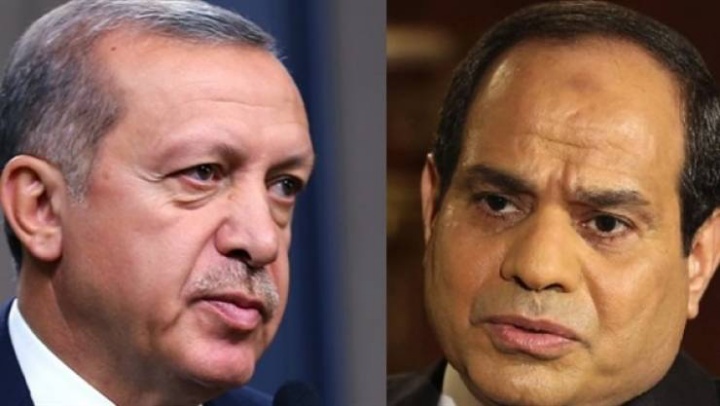 Africa had its fair share of military power-grabs – actually, it had a good deal more than that. Throughout the Cold War, military coups were the rule, not the exception. And Egypt, the bridge between the African and Arab worlds, was no stranger to coups. After all, it was a coup by the Free Officers Movement against King Farouk that led to the country’s independence from the British in 1952. Ever since it was ruled by military strongmen and no such thing as civilian supremacy existed before the Arab Spring brought down the country’s long-term dictator Hosni Mubarak.
Africa had its fair share of military power-grabs – actually, it had a good deal more than that. Throughout the Cold War, military coups were the rule, not the exception. And Egypt, the bridge between the African and Arab worlds, was no stranger to coups. After all, it was a coup by the Free Officers Movement against King Farouk that led to the country’s independence from the British in 1952. Ever since it was ruled by military strongmen and no such thing as civilian supremacy existed before the Arab Spring brought down the country’s long-term dictator Hosni Mubarak.
Tellingly, even the Arab Spring could not succeed without a military intervention. Only when the Egyptian army refused orders to open fire on the protesters in early 2011 was the reign of Hosni Mubarak finally brought to an end. Then, about three weeks ago, the army intervened again. Following a general disenchantment with the increasingly authoritarian governing style by President Morsi, the military ousted the democratically elected president, which was nothing less than a coup d’etat, a military power-grab delivered by the barrel of a gun. And, as such, it should be relatively easy to acknowledge.
But it wouldn’t be the Obama-administration, would an event abroad that can easily be defined not lead to a rather embarrassing diplomatic tussle. For nearly a month now, the State Department has been saying the very same thing: it is reviewing what happened and trying to determine what the ouster of President Morsi is but it refuses on the point of pointlessness to call what happened ‘a coup’. But since it is a coup, it cannot put a different definition out there as well. As it has really been reviewing the issue for more than three weeks, one is led to wonder what sort of advice the State Department is actually offering the White House in the meantime.
The inability of the State Department to get past the issue of how to ‘label’ the military coup in Egypt becomes fully amusing when it is urging the Egyptian people get past the removal of President Morsi. The reason the U.S. administration is so hesitant to make any determination in public is that once it would define the military ouster as ‘a coup’, it would be bound by law to cease all assistance to the government and the Egyptian military – this would, in turn, rob the U.S. of all leverage it has over the military. So in trying to explain away the apparent inconsistency in its position, the State Department argued that President Morsi was disliked by a great number of people and had failed to govern inclusively. As if popularity was somehow crucial in defining a military power-grab as ‘a coup’.
The bottom line is this: President Morsi clearly embarked on a course where he was not only overreaching but undoing the very promise of democracy. His political appointments were disastrous and a pluralistic democracy was clearly not what he had in mind for Egypt. So his government had lost legitimacy, but that does not render a coup legal. Still, the coup might have been called for and might in the end turn out to be a blessing for Egyptian democracy. But that should not stop the U.S. administration to call it what it is. Otherwise, any future military intervention we do not like would have to be treated in an equally wobbly manner.
Interestingly, the tiptoeing of the Obama administration stands in clear contrast to the decisive action taken by the African Union, which only two days after the coup suspended the country from all its activities. A coup, says the African Union, is ‘a coup’, no matter its intention or popularity. And they ought to know.



